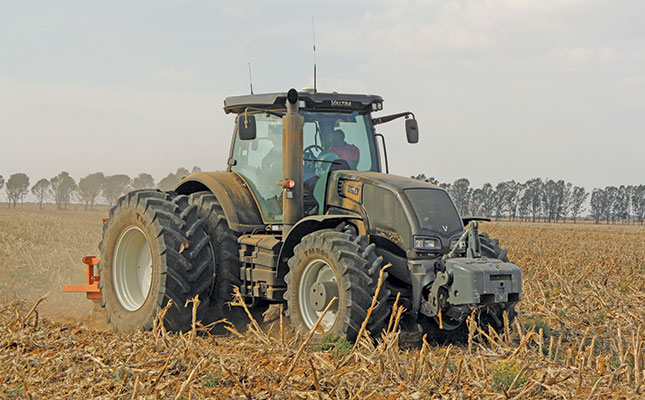Tillage and field operations consume a significant proportion of total energy used in crop and livestock production.
By following a few basic rules, you can mitigate some of the effects of the rising fuel and energy costs, reduce on-farm fuel consumption, prolong the lifespan of your tractors and other equipment, and protect the environment.
“Even a small improvement in efficiency can boost a farmer’s bottom line,” says Godfried Heydenrych, managing director of Argo South Africa, a subsidiary of Argo Tractors.
Operation and maintenance
One of the easiest ways to achieve fuel efficiency is to ensure that farm vehicles and other equipment are serviced according to the maintenance plan set out in the operator’s manual.
Keeping equipment in top condition by performing maintenance on a regular basis will help save fuel and money, reduce repair costs, and improve reliability. A study by the University of Maryland in the US on 50 tractors showed that fuel consumption was reduced by almost 15% after a full service. In addition, the maximum obtainable horsepower of those same tractors increased by an average of about 11%.
A proper and timely maintenance schedule carried out by an approved service provider will also extend the life of equipment, says Heydenrych. He adds that preventative maintenance is crucial for ensuring maximum efficiency and reliability. It is particularly important before and after planting and harvesting.
Change fuel, oil and air filters at the intervals advised in the operator’s manual. Blocked air filters can easily lead to an increase in fuel consumption of as much as 20%. And be sure to keep fuel injectors in diesel engines clean; a dirty injector can increase fuel consumption by between 10% and 15%.
Choose quality parts for your machinery and implements. Seek advice from reputable dealerships, and ask them to order authentic parts in good time.
It’s also important to use the correct engine oil, with the optimal viscosity, for a particular engine.
Tyres and wheel alignment
Heydenrych offers the following guidelines for tyre care:
- Make sure that tyres are properly inflated and checked regularly to ensure they are at the recommended inflation pressures; this will ensure the best traction and the lowest rolling resistance. Under- or overinflating tyres can make a substantial difference to fuel consumption, and affect the lifespan of the tyres.
- Underinflating a tyre can also decrease its traction, create ruts in soft soil, and result in the deterioration of the sidewall tread.
- Overinflating tyres leads to deterioration of the tread in the middle of the tyre and causes premature wear. It can also lead to soil compaction and increased fuel consumption because of heightened rolling resistance.
- Wheel alignment is equally important, as properly aligned wheels minimise the resistance from tyres and lead to reduced fuel economy.
- Fitting appropriately sized tyres for a particular tractor also makes a huge difference to fuel economy. If you are unsure about which tyres to use, the tractor dealer in your area can assist you.
Look after the engine
Refrain from labouring your tractors’ engines. Avoid quick starts and minimise idling, because they both waste fuel and are hard on the machines.
Even letting an engine idle for just 10 minutes a day can waste a great amount of fuel. To lessen the load on the engine and promote fuel efficiency, rather slow down the engine speed and shift up to a higher gear to maintain your desired speed.
In conclusion, Heydenrych stresses that farmers must ensure their tractors are operated at the correct settings for specific tasks.



